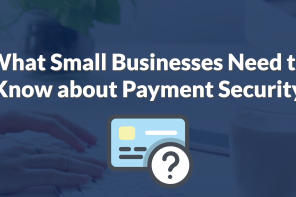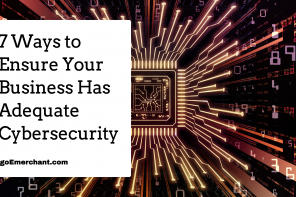For this month’s interview series with a Fintech Expert, we spoke with Robby Philips, a Senior Business Consultant with almost two decades of experience in Governance, Risk, and Compliance software solutions. Robby works at BusinessForensics, a European Risk Management Solutions provider, where he is an expert in the application of business data science to prevent financial crime.
Question: In which ways could Due Diligence in the e-Card Payments and e-Commerce sector benefit from Risk Management innovations in the Banking Sector?
RP: Great question! It is important to understand that Risk Managers identify different areas of Due Diligence, for example:
- Employee Due Diligence
- Executive Due Diligence
- Customer Due Diligence
- Legal Due Diligence
If we look at Due Diligence, we see that the Banking sector is evolving from standard Due Diligence procedures, such as rule-based monitoring, to risk-based monitoring. This involves innovative, data-driven techniques like ‘smart delta matching’, ‘scenario-based monitoring’ and ‘profiling’. These data-driven techniques help the Banking sector in determining and finding the natural and/or legal entity with the highest risk score. These techniques will also innovate Risk Management and Due Diligence processes in the online Card Payments, e-Commerce and mobile Commerce sectors.
Smart Data optimizes the Due Diligence process as it improves speed, efficiency, and security throughout the entire Risk Management protocol.
Just to give you a few examples; smart data can reveal that a potential client is linked to fraudsters, as well as discover new malicious fraud schemes to expose the fact that a natural or legal entity poses a conflict of interest in an important upcoming business deal.
It isn’t so much the data quantity, but the data quality which optimizes the Due Diligence process. We call this Smart Data, as opposed to Big Data.
Q: As a Business Forensics expert; what is your vision on Biometrics as part of the Customer Identification Program (CIP)?
I believe Biometrics data could play a very important role in the Customer Identification Program (CIP). Biometrics doesn’t only tackle Identity Theft, but it also improves CIP accuracy and data quality.
Data quality is one of the biggest challenges we face at the moment. How often do we see that a firm has multiple systems with multiple database that all store customer data? And how often do we see that these database do not have a single relational code that helps us identifying a customer? This lack of quality in customer data provides an opportunity for fraudsters to commit identity theft, a form of cybercrime which continues to challenge Risk Managers.
Using Biometric data can solve this problem, since it will help us obtain customer-unique Data, which is consistent Data in an environment where data is subject to constant changes. Biometrics transforms Big Data into Smart Data. Biometrics technology generates valuable data for Risk Managers, Underwriters and Fraud Investigators.
Every company, big or small will have to realize that the world is changing and data is getting more important every day. Not only the gathering as much data as possible, but also analyzing as much smart data as possible. This data can and will be used to optimize business processes and mitigate risk.
Q: Blockchain has recently been disrupting the Payment Industry. Could you provide your opinion of Blockchain from your perspective as a Business Forensics Expert?
I truly think that Financial Institutions will benefit enormously from Blockchain technology in the near future. We already identified some of the benefits offered by Blockchain:
- Improved Data Quality
- Transaction Speed
- Decreased Transaction Costs
- Increased Transaction Transparency and Immutability
I expect that we will face all sorts of challenges in the coming years, such as the integration of Blockchain into existing processes, regulatory uncertainties or the speed and provability of new technologies for data limits or verification process, just to mention a few, but if you look at the near future where Smart Data and Data Quality will become more and more crucial, Blockchain is definitely going to prove its added value.
Q: Business Forensics has recently been nominated for the Top 100 of the European FinTech Awards 2016, and in 2014 your company was nominated for the Cyber Security & Privacy Innovation Awards by the IPACSO consortium, which awards Privacy and Cyber Security Innovators in Europe. What were the criteria for your nomination and what made Business Forensics reach the Finals?
We were indeed nominated for both competitions, but besides these nominations we also won a couple of other competitions such as the VAST Challenge Visualization award (Stanford University).
We were nominated for the Top 100 European Fintech Awards because of our Big Data processing platform and our unique, smart and extremely flexible User Interface, which integrates Ongoing and Enhanced Due Diligence (EDD) functionality, thus reducing the risk of fraudsters exploiting a stolen identity. Business Forensics was nominated for the Cyber Security & Privacy Innovation Awards by the IPACSO consortium, thanks to our Authentication and Authorization Module that is incorporated into our software solution. It helps secure your data while decreasing the risk of data leaks.
Q: What do you see as the future trends and challenges in the highly innovative Fintech, Cyber Security and Risk Management Industry?
With regards to the future, the most important trend we will see in the coming years is that companies will move their Risk Management protocol from Process-driven to Smart Data-driven Due Diligence. The quality of data and its risk-based usability will be more important than simply filling out the right data to cover your Due Diligence process. Obviously, the implementation of Blockchain and the use of Smart Data will lead to new challenges. Data Science (i.e. Machine Learning) will have to be incorporated into Due Diligence processes at a much wider scale, improving the entire process from the initial onboarding phase to ongoing and enhanced Due Diligence (EDD). Data Science will transform Risk Management and increase security of financial transactions in the Banking, Card Payments and growing Mobile e-Commerce sectors. Fintech is constantly innovating and challenging the financial industry and we as Business Forensics want to contribute to these exciting developments.
Robby Philips is a Senior Business Consultant with two decades of experience in Governance, Risk and Compliance software solutions. Robby currently works for BusinessForensics, a European Risk Management Solutions provider, where Robby is an expert in the application of Business Data Science to prevent Financial Crime. https://nl.linkedin.com/in/robbyphilips
About BusinessForensics: http://businessforensics.nl/
Author: www.elenavandesande.com




